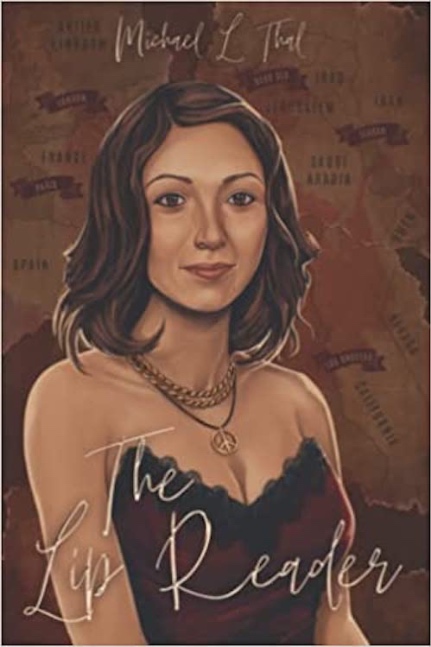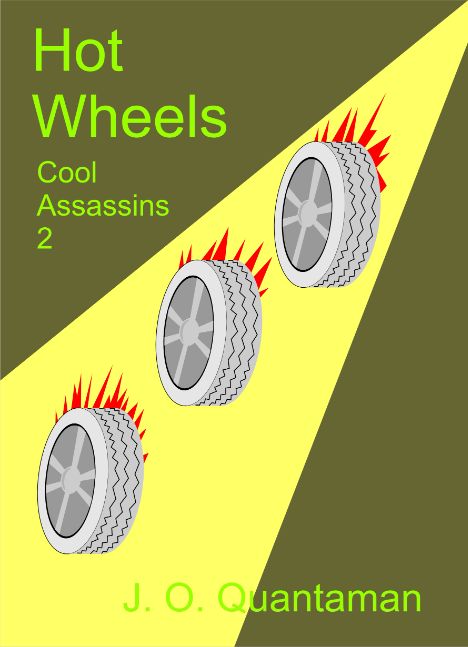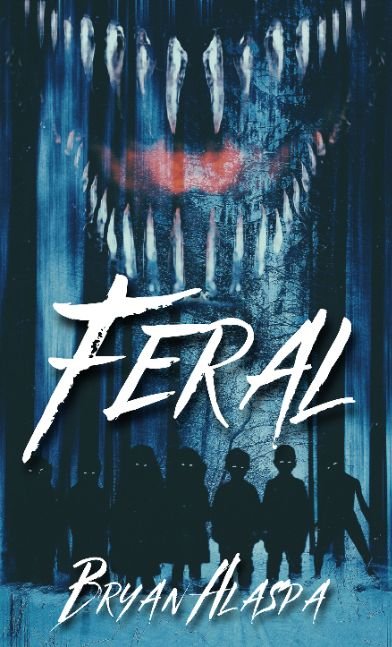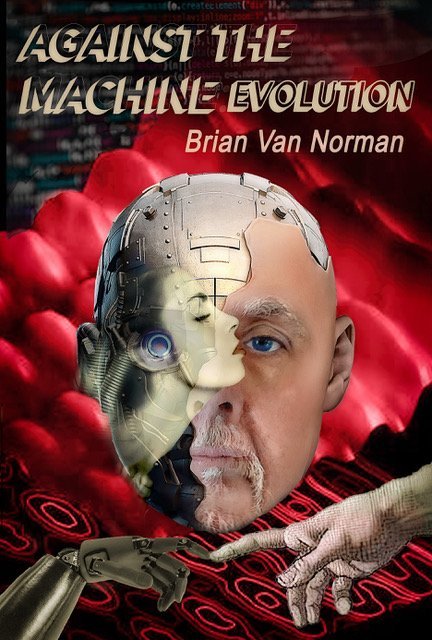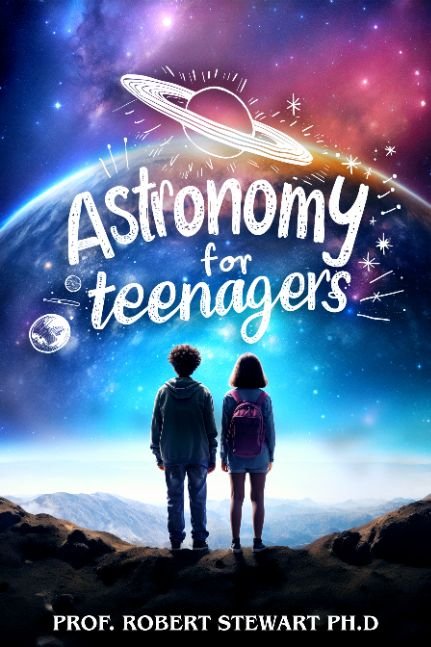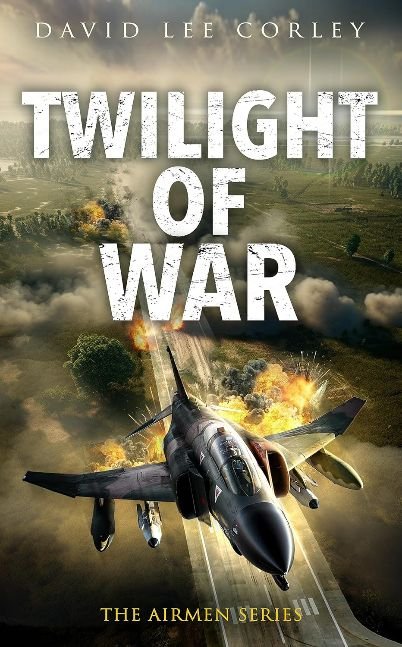- Home
- Book Trailer
- The Interview - W.D. Kilpack III
The Interview - W.D. Kilpack III
 https://kilpack.net/
https://kilpack.net/
How did you become an author and get published? Share your experience.
For as long as I can remember, I’ve been writing and telling stories. Before I learned how to write, I would draw pictures of spaceships, then act out the battles, drawing in the laser blasts and explosions after erasing parts of the ships that were blown away by enemies. I’ve blown up the U.S.S. Enterprise 10,000 times. I originally wanted to be a cartoonist and start my own line of comic books. I loved superheroes (and still do!) and would draw the comics, as well as write the stories. My first comic-book character was Super Mouse, created when I was 5 or 6. He was pretty much Superman, but a mouse, and he beat up cats. It was very serious stuff, not Tom and Jerry. That was my dream until I wrote my first fantasy novel, when I was 12. I was first published when I was 9, when a teacher entered a poem I wrote into a contest without my knowledge. It won and was published. I was first hired as a professional writer when I was 15, as an editor for a sports publication. Funny thing, the sports publication rescinded the offer to be an editor and changed it to a reporter position when I told them I didn’t have a driver license. I was editor-in-chief of both my high school newspaper and literary magazine, and editor of my college newspaper. Since I wrote my first novel, I always had pencil and paper with me, so I could jot down a few ideas when the need hit me.
From age 15 to 20, I was published 200 times and stopped counting them. (Stopped tracking them, too. I do NOT recommend do that. I was young and didn't realize what a mistake I was making.) When I graduated with my bachelors, I quickly learned that I could not have a family and live the lifestyle that I wanted them to have on a journalist's salary, so I went back to school to get my masters degree and put my publishing goals on the back burner, other than freelancing here and there, writing a column here and there. After my youngest graduated college, I went back to pursuing my dreams and it's been full steam ahead. I've been loving it, try to enjoy and appreciate every moment and try not to take anything for granted.
When you're working on a book and a new idea pops up, should you pursue it immediately (also known as 'UP syndrome') or finish your current project first? What do you think is the best course of action?
The best advice I have for new writers is write, write, write. You see a movie and a line of dialogue has you going down another path, write it down. You hear a song and a lyric strikes you, write it down. The best advice for someone wanting to be a writer is just that: start. Then, after you have enough down to nail the idea so you don't forget it, go back to what you're working on, finish, then go back to the new idea and go nuts!
Which character do you enjoy writing the most as a writer and why? If choosing a favorite character is like choosing a favorite child, which character do you find requires the most attention and detail from you as a writer?
Natharr, Guardian of Maarihk, the main character in the New Blood Saga. One professional reviewer came up with something interesting to describe Natharr: a blend of Aragorn, Alanon, and Teddy Roosevelt. I never thought of that, but I can't refute it, and I like it. That being said, the kernel of the idea for Natharr came to me years ago. When I was an undergrad studying philosophy, I was fascinated by Socrates, who would go into a trancelike state, then emerge with new answers to questions. He called it being seized by the Daemon of Philosophy. Natharr has something similar in his makeup, when he is seized by the Daemon of Sight.
What are some books or authors that you would recommend to our readers?
I love Homer’s Iliad and Odyssey; Tolkien’s Lord of the Rings trilogy (I have a single-volume collection); and Shakespeare’s MacBeth.
Tell us what you enjoy most about writing [genre].
What I enjoy most about writing science fiction and fantasy is actually the same thing. In both genres, one of the primary tools used is distortion: technology or magic making certain elements bigger, sometimes larger than life. That makes the human condition more poignant and can really lead down a rabbit hole in terms of specific ideals. I love that!
What have you found to be most challenging about writing in [genre]?
I wouldn't say this is specific to any genre, but writing in general: reader reviews. What I try to do with bad reviews from readers if approach it like this.
You can't please everyone. It's just not possible. That said, if you're putting your work out for the public to see, then you have to develop a thick skin. In college, there was an English professor who used to send us (the campus newspaper) hate mail almost every week. She didn't like that we used the Associated Press Stylebook, she didn't like who was chosen to be quoted, she didn't like that certain stories were done at all, she didn't like the photos (granted, with a weekly paper, sometimes we didn't have the time to reshoot pix ... can't say much more on that one), etc. This helped me develop a thicker skin. Now, when I get a bad review, I vent with my wife, then I do my best to just let it go. I know, it's not easy. The bottom line is, how many books has that person written? None? Then that person has no idea how much time, effort, sleepless nights, waking up at 3 a.m. and going down to write or you'll never get back to sleep, etc. That's how I deal with it. On the positive side, that's also why I never give a book less than 3 stars (out of 5), because I know how much work it is, and I refuse to slam someone for having the passion and the work ethic to write and publish a book.
Describe the [book/series] in 10 words or less for people who are just learning about it.
The New Blood Saga centers around Natharr, whose Sight shows him the future, so he can decide what is unavoidable and what is not, to plan accordingly to save the life of the newborn Crown Prince to one day reclaim the throne.
Would you like readers to have any specific takeaway from your book?
First, to enjoy the world, the characters, and the story. All of that helps teach lessons like endurance and being able to overcome obstacles. Natharr is faced with crushing responsibilities, faces incredible challenges, endures pain and emotional anguish, then grits his teeth and keeps going.
Do you have any unusual writing habits?
I don’t know if this qualifies as “unusual,” but I often surprise myself when I’m writing. That’s an amazing feeling, where I'm writing, then sit back and think, "Whoa! I didn't see that coming!" I figure, if it surprises me, then it will definitely surprise the reader.
And that's a good thing.
As an author, what critique has been the most challenging for you to receive? On the other hand, what compliment has been the most rewarding?
So far, feedback has been amazingly positive. (Knock on wood.) So much so, I just find it humbling. What compliment has been the most rewarding? I've had some professional reviews that used words like "Shakespearean," "atmospheric," and "immersive," which just gives me chills. My most recent review, from my favorite video reviewer was about Order of Light: Book Two of New Blood. He said, "At this rate, Kilpack is well on his way to writing one of the greatest epic fantasy tales of all time! The prose is magnificent and captivating with a healthy dose of description and character beats. Fans of Wheel of Time will find everything they love — and more! — but tweaked to perfection. The plot had me at the edge of my seat as these characters that I’ve become so attached to were put through harrowing and very unexpected events." After that, I got a little emotional.
What is your take on book boyfriends? Do they actually exist? Or do they set the bar for “real life men” impossibly high?
I don't know what "book boyfriend" means.
Have you ever experienced writer’s block? How did you deal with it?
I have never experienced writer's block. If I'm working on a project and I'm not sure what's coming next, I switch to another project (shifting gears, in a way) and get some work done there, which usually opens back up the channels in my mind.
Was there anything you had to research for the book?
Research plays a huge role in my writing. It's challenging, but also very rewarding.
In my fantasy writing, I do a lot of research into specific cultures, technology that was available in medieval times, even word usage. I find that it helps make the world more real, aside from giving me great material to use. As a result, I have people ask, “How did you come up with that?” My answer is something like, “I didn’t. It was still in practice in England till the 1880s.”
For my science fiction, research plays an even bigger role, researching technology, as well as the latest discoveries in space exploration. I’ve always been a space buff, so I have a pretty significant library. I never took a physics class, but I’ve read some of the most influential books at the time in quantum physics.
Did you always want to be an author? If not, what did you want to be when you grew up?
I originally wanted to be a cartoonist and start my own line of comic books. I loved superheroes (and still do!) and would draw the comics, as well as write the stories. My first comic-book character was Super Mouse, created when I was 6. He was pretty much Superman, but a mouse, and he beat up cats. It was very serious stuff, not Tom and Jerry. That was my dream until I wrote my first book, when I was 12.
Are any of the characters in your book based on people in your real life? If so, can you tell us more about that process and how it influenced your writing?
Aren't all characters in books based on real people to a certain degree? I don't have any characters that are inspired by one person. I have characters who might have certain aspects that are in homage to people I know or characters I loved in books or movies. I have characters who have expertise in things where I have expertise. (Write what you know, right?) I try not to be repetitive, but there are some things I like, which I need to keep me engaged in the writing, so the volume on those things might have to be turned up or down with different characters to ensure that they remain fresh.



